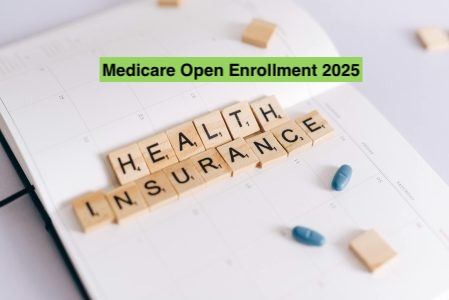Often, retirement is viewed as a time of relaxation. For many, that could mean long walks, quiet mornings, and finally pursuing hobbies. Here’s the thing, though. As much as life slows down, healthcare needs don’t. In fact, sometimes, they become even more urgent. That’s why regular checkups and preventive care are vital in retirement.
During retirement, proactive health care can profoundly affect your quality of life. The goal isn’t just to live longer; it’s to remain active, independent, and healthy so that you can enjoy the years you’ve worked so hard for. As such, let’s examine why preventive healthcare matters and how it can work for you.
Table of Contents
ToggleWhy Proactive Healthcare is Critical in Retirement
As the years pass, our bodies naturally undergo subtle changes. As a result, we are more likely to develop chronic conditions such as heart disease, diabetes, arthritis, osteoporosis, and some types of cancer. Fortunately, many of these conditions can be caught early, managed effectively, or even prevented altogether with regular health screenings and checkups.
However, Most of us put off or overlook our annual doctor’s appointments when our to-do lists are overflowing. But that’s no longer an excuse. Retirement allows us to change our priorities and prioritize our health.
In other words, now is the time to prepare for your golden years by investing in the foundation needed. So by maintaining your health now, you’ll be able to actively participate in all those dreams you’ve nurtured in retirement, making them more vibrant and fulfilling.
Unpacking the Elements of Proactive Preventive Care
The importance of preventive care goes beyond the once-a-year physical. It is a holistic approach to preventing health problems. Think of it as putting together a comprehensive health puzzle, where each piece adds to your overall health. There are often several key pieces to this puzzle, including;
- Annual wellness visits. There is more to these comprehensive appointments than just checking vital signs. During these sessions, you can discuss your lifestyle and any concerns, speak with your doctor about your medical history, and create a personalized health plan together.
- Essential screenings. Regular screenings can detect high blood pressure, elevated cholesterol, and high blood sugar early. Often, these tests reveal silent issues that can lead to serious health problems if left untreated.
- Age-appropriate cancer screenings. Depending on your age, gender, and risk factors, screenings like mammograms, colonoscopies, prostate exams, and skin checks can help detect cancer at its earliest, most treatable stage.
- Essential vaccinations. By staying up-to-date on vaccinations, such as flu shots, shingles vaccines, and pneumonia vaccines, you reduce your risk of contracting illnesses that can be particularly debilitating later in life.
- Maintaining sensory health. Keeping your vision and hearing in good condition is essential for maintaining independence and quality of life.
- Assessing bone health. A bone density test can detect osteoporosis early, so interventions can be implemented to prevent fractures and maintain mobility.
- Prioritizing mental well-being. As important as physical exams, mental health screenings are essential to prevent conditions like depression and cognitive decline. Life changes can be significant in retirement, and addressing mental health proactively can contribute to overall happiness and well-being.
Each of these elements can help you gain valuable insight into your health status and identify potential risks before they become serious.
The Power of the Routine Checkup: Your Health Safety Net
You might feel fantastic, energetic, and ready to tackle retirement’s adventures. However, that feeling of well-being doesn’t always reflect the intricate workings of your body. High blood pressure, for example, may not exhibit symptoms at first, but it silently damages your heart over time. A regular checkup is a vital safety net, catching silent threats before they cause serious damage.
At a typical checkup, your dedicated healthcare provider acts as your health detective, carefully examining:
- Tracking vital signs. In terms of your overall cardiovascular health, monitoring changes in weight, blood pressure, and cholesterol levels is crucial.
- Medication review. By regularly reviewing your medications, you can ensure their continued effectiveness, identify any potential side effects, and prevent harmful interactions.
- Risk assessment. Your doctor can assess your risk of developing chronic conditions, in addition to your family history and lifestyle.
- Open dialogue. If you have noticed any changes in your diet, sleep patterns, or energy levels, or if you have any new aches or pains, these appointments are a suitable place to discuss them.
As a result of these routine visits, you can detect deviations or unusual patterns early on, when interventions are most likely effective.
Beyond the Physical: Nurturing Mental and Emotional Well-being
In addition to staving off physical ailments, proactive healthcare has several other benefits. Retirement is a significant transition in life, and it has many advantages and challenges. It is common for people to suffer from loneliness, isolation, or even subtle indications of depression. As part of your regular checkups, your healthcare provider can screen for and address these mental and emotional aspects of your well-being, offering support and resources as necessary.
It also provides an invaluable sense of peace of mind to build a strong and trusting relationship with a consistent healthcare provider. Knowing that a knowledgeable professional is actively monitoring your health allows you to relax, enjoy retirement, and live fully.
Proactive vs. Reactive: The Wisdom of Early Action
It’s common for many of us to have a “reactive” approach to healthcare. Generally, we seek medical attention only when something is visibly or palpably wrong. However, it is possible that a health condition may already be advanced by the time noticeable symptoms appear, making management more difficult.
A proactive approach completely flips the script. Rather than waiting for a problem to arise, prevention and early detection are the focus. As a result of this forward-looking approach;
- Lower long-term medical costs. Early detection can often reduce the need for expensive and invasive treatments. For example, providing obesity reduction services and reducing obesity-related diseases could lower premiums by 0.05 to 0.1 percent.
- Reduced emergency visits and hospitalizations. By managing conditions proactively, acute episodes can be prevented.
- Improved management of existing conditions. Regular monitoring and adjustment to treatment plans will enable chronic illnesses to be controlled more effectively. Screening for cancer and early treatment could, for example, reduce the cancer death rate by 29 percent.
- Enhanced quality of life. The longer you live, the more active, independent, and fulfilling your retirement will be.
Consider it like fixing a small leak in your home’s foundation. The sooner you deal with it, the less likely you will suffer a costly and disruptive flood.
Overcoming Common Hurdles to Preventive Care
Despite retirement’s gift of time, specific barriers can still prevent individuals from prioritizing preventive care, such as;
- “I feel fine. Why bother?” This is often a misconception. Many serious health issues develop silently. Regular checkups aren’t just about dealing with illnesses; they’re also about staying healthy.
- “It’s too expensive.” For those on Medicare, most preventive services, such as screenings, wellness visits, and many vaccines, are covered at little to no cost. You must also understand the specific benefits of your insurance plan. Additionally, you can purchase more affordable health insurance through the Health Insurance Marketplace under the Affordable Care Act.
- “I don’t know where to start.” Establish a relationship with a primary care provider. They can help you navigate the recommended screenings and services based on your individual needs.
- “Doctors just rush through everything.” It is important for you to feel heard and understood. Whenever you have concerns about the care you receive, don’t hesitate to seek out a provider who will listen to you.
Your Personal Health Checklist: Your Roadmap to Well-being
It can sometimes feel overwhelming to navigate the healthcare landscape, especially as our needs change. However, it doesn’t have to be overwhelming. Think of managing your health like tending a garden — consistent care yields the best results. A simple checklist can be essential for staying on track in your healthcare journey. As such, consider including the following;
Schedule annual wellness visits.
You should never miss a routine check-up as part of your preventive care plan. Routine check-ups identify possible risks early and allow you to build a strong relationship with your primary care physician.
Get recommended screenings (ask your doctor what applies to you).
Certain conditions can be detected earlier, when they are more treatable, through screenings. These may include mammograms, colonoscopies, and bone density scans. Depending on your age, gender, and health history, your doctor may recommend different screenings.
Stay up to date on vaccines.
The importance of immunizations extends beyond childhood. Staying current on recommended vaccines, such as influenza, pneumonia, and shingles, is important for maintaining good health as you age.
Track your medications and discuss any side effects.
You should maintain an accurate list of all your medications, including doses and frequency, for your safety and effective communication with your healthcare providers. If you have any concerns or side effects, report them immediately.
Stay active and eat well.
Maintaining good health requires these lifestyle pillars at any age. Regular physical activity and eating a balanced, nutritious diet can significantly increase energy levels, prevent diseases, and improve overall health.
Prioritize sleep and mental health.
The importance of adequate sleep and mental well-being cannot be overstated. Be sure to get a good night’s sleep and engage in activities that benefit your emotional and mental health. If you need mental health support, do not hesitate to seek it.
Speak up if something doesn’t feel right.
Ultimately, you are the expert on your own body. If you notice any new or concerning symptoms, speak to your doctor immediately. Early detection and intervention can make a significant difference.
To streamline your healthcare management, consider keeping a small notebook or a digital record. You can use it to keep track of appointment dates, test results, and any questions that arise between visits. By following this organized approach, you can actively participate in your healthcare decisions.
Building a Healthcare Team You Trust
During retirement, your healthcare needs may become more specialized. As part of your healthcare team, you may have access to a variety of specialists, including;
- Cardiologists
- Endocrinologists
- Physical therapists
- Audiologists
- Nutritionists
- Mental health professionals
Seamless coordination is crucial for effective care when working with a larger team. As such, provide all your providers with an overview of your overall health and the treatment you are receiving. If you have any concerns, please do not hesitate to ask questions, seek clarification, or express them to anyone on your team. To ensure the best possible outcomes, remember that you are the most important member of your healthcare team.
Final Thoughts: Investing in Your Future Self
The value of preventive care goes beyond a routine — it’s an investment in your independence, energy, and peace of mind. Being proactive gives you the best chance of enjoying your retirement as you imagined: full of movement, connection, and meaning.
Regarding your health, there’s no downside to staying on top of things. In contrast to many other things in life, this one has only three steps: show up, check in, and stay alert. From there, everything else follows.
FAQs
What are regular checkups and preventive care?
- Regular checkups. Even when you feel well, you should visit your primary care physician and other specialists (e.g., dentist, ophthalmologist). In addition to physical examinations, they often include discussions about your health history, lifestyle, and routine screenings.
- Preventive care refers to proactive measures taken to prevent illness or detect it early when it can be treated more easily. This includes vaccinations, screenings (such as mammograms and colonoscopies), lifestyle counseling (such as diet, exercise, and tobacco cessation), and managing chronic conditions.
Why are regular checkups and preventive care essential in retirement?
- Increased risk of age-related conditions. As we age, chronic diseases like heart disease, diabetes, cancer, and osteoporosis become more prevalent. These conditions can be detected early with regular checkups.
- Early detection improves outcomes. In many cases, serious illnesses are more treatable in their early stages. Preventive screenings can identify problems before symptoms even appear, improving treatment outcomes and health outcomes.
- Managing existing chronic conditions. Regular checkups allow your doctor to monitor chronic conditions, adjust treatment plans, and prevent complications.
- Maintaining functional independence. By staying healthy, you can maintain independence, participate in activities you enjoy, and avoid daily limitations.
- Reducing healthcare costs in the long run. Even though checkups and screenings may cost, early detection and prevention can often avoid the need for more costly and intensive treatments in the future.
- Improving overall well-being. Physical wellness contributes significantly to mental and emotional well-being, so you can enjoy retirement more fully.
How often should I have regular checkups in retirement?
You should get regular checkups depending on your age, health status, and risk factors. In general, it’s a good idea to;
- See your primary care physician annually. This will allow you to discuss a general health assessment, medication review, and any new concerns.
- Follow your doctor’s recommendations for specific screenings. Depending on your age, sex, family history, and risk factors, you may or may not be at risk. Examples include mammograms, colonoscopies, prostate exams, bone density scans, and eye exams.
- Continue regular dental checkups (usually every six months). Good oral health is important for overall health.
- See specialists as recommended. If you have existing medical conditions, you should schedule appointments with specialists such as cardiologists and endocrinologists according to the recommended schedule.
What types of preventive screenings are typically recommended for retirees?
Retirees may benefit from the following preventive screenings;
- Cancer screenings. In addition to mammograms (for breast cancer), colonoscopies (for colorectal cancer), prostate-specific antigen (PSA) tests (for prostate cancer), and lung cancer screenings (for people at high risk), skin exams are also recommended.
- Cardiovascular screenings. Checking blood pressure, cholesterol levels, and electrocardiograms (ECG or EKG).
- Metabolic screenings. A blood glucose test (for diabetes).
- Bone health screenings. A bone density scan (DEXA) can detect osteoporosis.
- Vision and hearing tests. It is essential to get regular eye exams to check for glaucoma, macular degeneration, and cataracts and hearing tests to detect hearing loss.
- Vaccinations. Flu shots, pneumococcal vaccines, shingles vaccines, and tetanus boosters should be administered annually.
How can I prepare for my regular checkup?
- If you have any symptoms or concerns, make a list of them.
- You should bring a list of all your medications, along with the dosages and how often you take them.
- If your health has changed since your last appointment, note it.
- Make a list of questions you would like to ask your doctor.
- Don’t forget to bring your insurance information.
- If you have memory issues or multiple concerns, consider bringing a family member or friend to provide support.
What are the costs associated with regular checkups and preventive care in retirement?
- Medicare Part B typically covers many preventive services, including wellness visits, cancer screenings, diabetes screenings, and vaccinations. However, depending on your Medicare plan and the specific service, there may be copays, coinsurance, or deductibles.
- Private insurance. Depending on your plan, you may be covered for preventive care with private health insurance. Many insurance plans cover preventive services with little or no out-of-pocket expense.
- Medicaid. Each state has its own Medicaid coverage for preventive care.
- Before your appointments, you should understand your insurance coverage and any potential out-of-pocket expenses. Please ask your doctor’s office or insurance company if you have questions about the costs.
Image Credit: Marco Dental Tourism Stomatolog Beograd; Pexels














